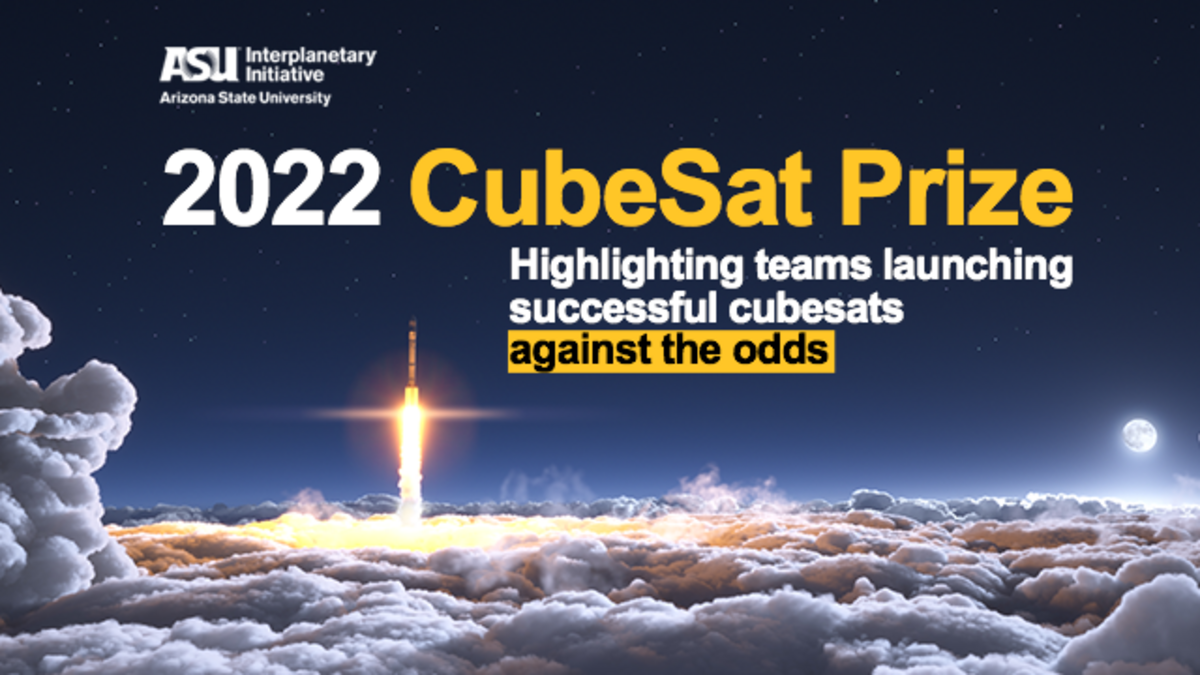ASU's Interplanetary Initiative now accepting nominations for CubeSat Delivery Prize

Arizona State University's Interplanetary Initiative is now accepting nominations for its 2022 CubeSat Delivery Prize. The prize will recognize an outstanding achievement by a novice team launching a CubeSat in order to encourage new groups or underrepresented people or schools to engage in space education and promote CubeSat education.
Eligible teams may come from a school or country that does not have a track record of successful missions, have overcome adversity, have launched a mission that creates a compelling educational opportunity or have engaged a unique coalition of collaborators.
Teams may self-nominate or nominate another team. Learn more and share your story here.
Nominees will be reviewed and scored by an expert evaluation panel. The winner will be announced in May 2022.
The winning team will receive a cash prize of $7,500 and its story will be shared with the world through ASU’s communications channels, the Interplanetary Initiative’s social media channels and newsletter, reaching thousands of people, and a guest spot on the "Mission: Interplanetary" podcast.
“Delivering a working spacecraft for launch is a huge victory for any non-professional team. This award shows our appreciation for the kind of effort this represents,” said Danny Jacobs, associate director of the Interplanetary Initiative.
The award was made possible thanks to the generosity of the Shojaee Foundation.
The Interplanetary Initiative at Arizona State University engages broadly across disciplines and sectors to create an interplanetary future built upon cooperative and inclusive new structures, systems and perspectives. We study and solve the big social and systems questions that pave our future in space. The Interplanetary Initiative most recently announced a collaboration with Blue Origin and other space leaders to build Orbital Reef, a premier, mixed-use space station in low Earth orbit designed to open multiple new markets in space.
More Science and technology

ASU professor breeds new tomato variety, the 'Desert Dew'
In an era defined by climate volatility and resource scarcity, researchers are developing crops that can survive — and thrive —…

Science meets play: ASU researcher makes developmental science hands-on for families
On a Friday morning at the Edna Vihel Arts Center in Tempe, toddlers dip paint brushes into bright colors, decorating paper…

ASU water polo player defends the goal — and our data
Marie Rudasics is the last line of defense.Six players advance across the pool with a single objective in mind: making sure that…

